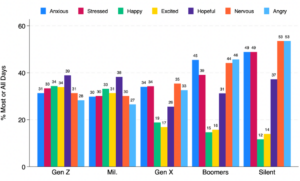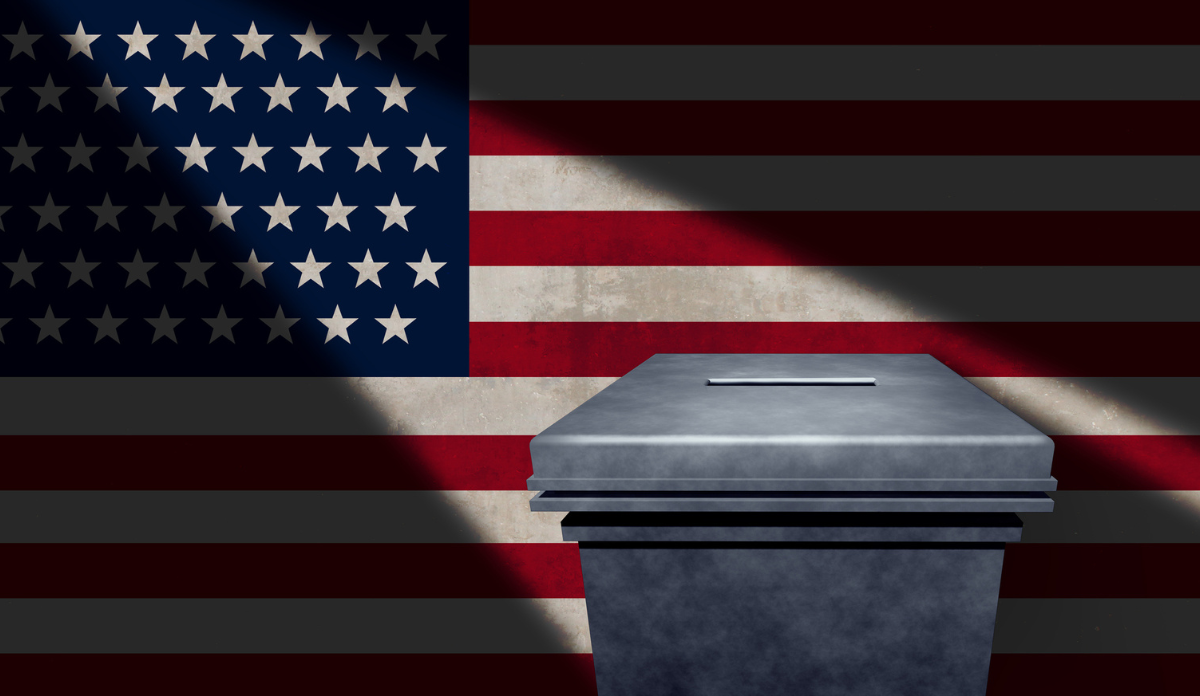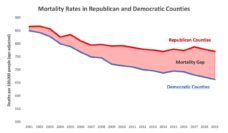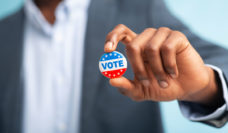Americans have many reasons to be anxious. Existential threats posed by climate change. Concerns about the fate of electoral democracy in the United States. International conflicts across the globe. The fight for bodily and reproductive autonomy, gender affirming care, and much more.
With so much at stake, it’s understandable that many may be feeling anxious, fearful, sad, or outright angry about the upcoming contest between President Biden and former President Trump.
Still, the extent to which the election is contributing to America’s growing mental health crisis remains an open question. That’s why we set out to ask Americans how the 2024 Presidential Election is making them feel.
We were especially interested in the effect the election might be having on America’s youngest potential voters, who are especially likely to report experiencing symptoms of anxiety and depression.
As the nation’s youngest voting cohort, Gen Z may be living with the consequences of the 2024 election for many years to come. On the other hand, many young people say they are not paying close attention to electoral politics. Recent polling documents high levels of voter apathy among Millennials and Gen Z.
This dynamic presents something of a “double bind” for young Americans. If Millennials and Gen Z are “tuning out,” they may be less likely to experience negative emotions related to the election. However, that reprieve comes at the potential cost of not having their voices heard.
We surveyed 1,400 adults about the extent to which the upcoming presidential election may be causing them to experience a wide range of negative and positive emotions. Our nationally representative poll was conducted online, in partnership with YouGov, from February 16 to 23, 2024.
Our work cautions that those who are paying the closest attention to the election are experiencing a wide range of negative emotions about it.
We asked respondents to read the following prompt: “In the PAST MONTH, how often, if at all, would you say that the 2024 presidential election has made you feel…?” Respondents then reported whether the election made them feel anxious, stressed, happy, excited, hopeful, nervous, or angry. Respondents could report experiencing each of these emotions “Every day, “Most days,” “About once a week,” “Hardly ever,” or “Never.”
Many Americans reported that the upcoming election made them feel anxious (35%), stressed (33%), nervous (35%), and/or angry (34%) on all or most days in the month prior to taking the survey. Far fewer reported feeling happy (23%) or excited (23%) about the election over the same timeframe. However, one-third (33%) did report feeling hopeful.
Of particular interest, Gen Z respondents were less likely than older voters to report experiencing negative emotions about the upcoming presidential election. The figure below presents the proportion of each age cohort who reported having each of the previously mentioned emotional experiences. Older age cohorts (Gen X, Baby Boomers; Silent Generation) reported higher levels of anxiety and stress than their Millennial and Gen Z counterparts.

This pattern of results is consistent with the idea that younger age cohorts may be particularly reluctant to closely follow the 2024 campaign. In our data, we found that Gen Z (30%) and Millennials (27%) were considerably less likely to report following political news “most of the time,” compared to 56% of Baby Boomers and 77% of members of the Silent Generation.
Correspondingly, given the well-documented correlation between news consumption and voting habits, we found that 70% of Baby Boomers and 79% of members of the Silent Generation reported intending to vote in their state’s primary contests, while just 61% of Gen Z and 55% of Millennials intended to do the same.
To be clear: lower levels of election-related anxiety do not imply that young people are experiencing lower levels of anxiety and depression than older age cohorts. Rather, their anxiety is not necessarily related to presidential politics.
Additionally, we do not intend to cast judgment on those who may feel apathetic about participating in the 2024 election. There are many (very understandable) reasons why young people might tune out from politics, including dissatisfaction with their electoral choices at the top of the ticket, and feelings of hopelessness with respect to solving some of the nation’s most pressing and long-term policy problems.
Our work instead cautions that those who are paying the closest attention to the election are experiencing a wide range of negative emotions about it. Tuning out the news may help explain why young people are less likely to experience those negative emotions. It may also imply that their voices are less likely to be heard.
Photo via Getty Images














